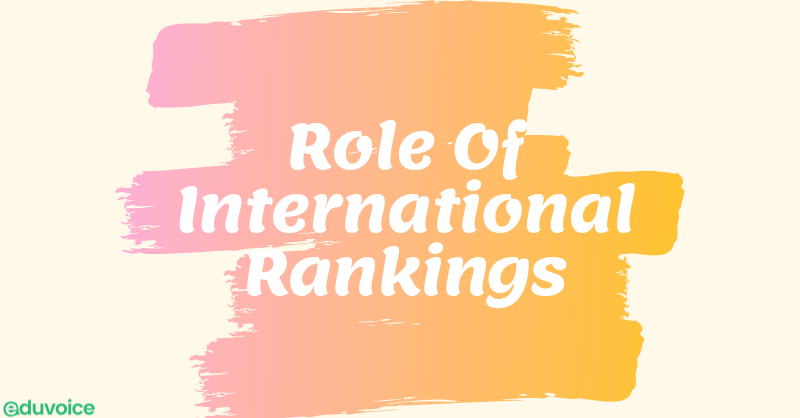Role of International Rankings in Indian Higher Education
A 10-point ambitious growth and change plan for Indian Universities have been introduced at an event in New Delhi today to empower them to accomplish international rankings.
This plan was exhibited by the Founding Vice-Chancellor of O.P. Jindal Global University, Prof (Dr.) C. Raj Kumar and Mr Ashwin Fernandes, Regional Director (Middle East, North Africa& South Asia) QS Quacquarelli Symonds and CEO, QS IGAUGE Indian College University Ratings. Both of them emphasised the requirement for Indian higher educational institutions to be at standard with their international partners and furthermore put resources into methodologies, vision and foundation to guarantee they break into globally perceived international rankings.
“Global rankings have emerged as a dominant way of measuring their performance. There is today a serious debate on the need for Indian universities to be in the top 200 universities of the world and the urgency of seeking reforms that will pave the way for promoting excellence in higher education and research. It is important that Indian universities embrace the international rankings framework as well as international accreditation processes which will benchmark Indian universities with the world-class universities in many countries,” clarified Prof (Dr.) C. Raj Kumar.
Related News: Soon Indian Institutes Will be in Top 100 Rankings.
Today, the Times Higher Education World Universities Rankings, QS World University Rankings, and the Shanghai Jiatong Rankings have moved toward becoming a piece of the institutional yearnings for some universities and higher education institutions in India, he said. “The challenges related to higher education in India deserve urgent attention and require determined responses.”
“In the next decade, international ranking systems will influence the quality assurance and accountability with more government policies focusing on quality assurance systems and academic standards. The scholar community should actively enter debates about the assessment of academic standards and the design framework and the use of rankings and ratings. Due to the simplicity of their representation of evidence and sophisticated validation measures, these exhaustive quantitative methodologies will be accepted as reliable measures in redefining the overall quality and accountability in higher education,” said Mr Ashwin Fernandes, Regional Director (Middle East, North Africa& South Asia) QS Quacquarelli Symonds and CEO, QS IGAUGE Indian College University Ratings.
Consideration must be paid to the lacklustre showing of Indian universities in the global rankings and observe the criteria required to prevail in the world ranking, particularly the significance of research and distributions. Different variables that impact ranking incorporate academic development, scholarly opportunity, and research greatness are always advanced. Likewise, internationalization is a significant standard for breaking into the global rankings. This incorporates measures on the number and impact of international students, international workforce, global commitment and organizations on research, educating, and personnel and student trade. The global ranking frameworks have progressively turned into a pointer of the institutional nature of higher education institutions and are an incredible proportion of the certifiable effect of universities and their job as information makers.
For More Such Articles, News Update, Events, and Many More Click Here.

